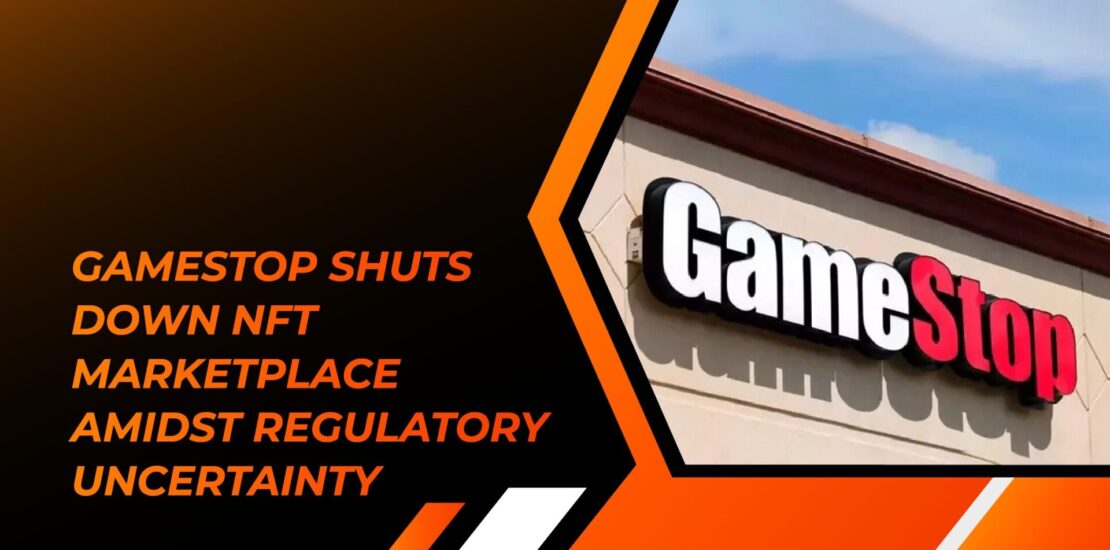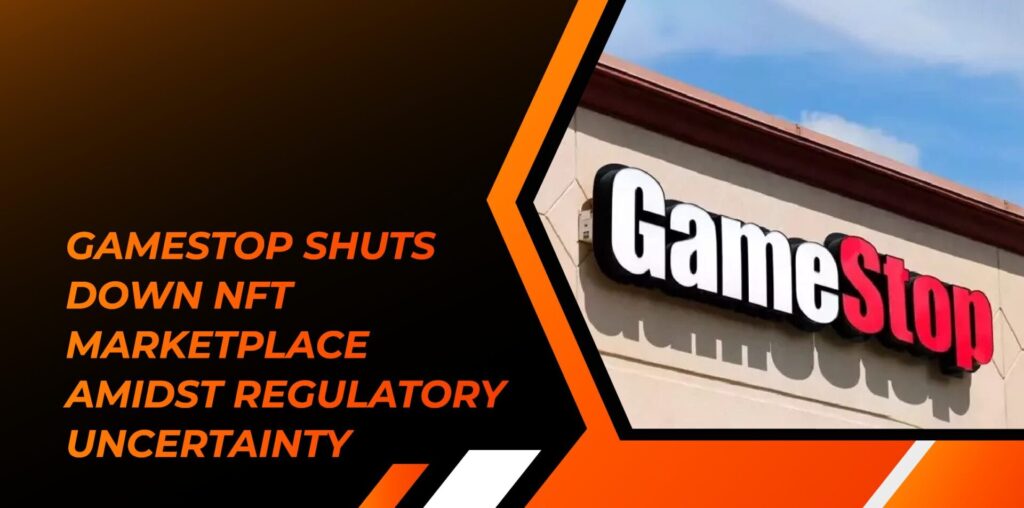- January 16, 2024
- Posted by: [email protected]
- Category:


Gaming retailer GameStop has officially closed its NFT marketplace, marking its retreat from the cryptocurrency sector. The decision, communicated through a platform statement, attributes the shutdown to the “continuing regulatory uncertainty of the crypto space.” This development underscores GameStop’s gradual departure from the crypto arena, following the discontinuation of its crypto wallet in August.
GameStop’s foray into NFTs began with the launch of its marketplace on Halloween 2022, focusing on gaming assets and collaborating with ImmutableX, an Ethereum layer 2 blockchain solution. The closure of this venture aligns with the company’s broader disengagement from cryptocurrency-related initiatives.
While assuring customers that they can still sell their NFTs on alternative platforms, GameStop emphasizes that these digital assets are inherently hosted on the blockchain and are not exclusively tied to any single platform.
Industry observers might not find the shutdown surprising, considering the marketplace’s limited impact on the overall NFT trading landscape. The X account associated with the marketplace had remained inactive since September of the previous year. This decision represents a significant shift for GameStop, which had sought to connect with its loyal retail trader community through its venture into Web3 in 2022.
GameStop’s reference to regulatory uncertainty echoes a common rationale for withdrawing or discontinuing digital asset initiatives. The move aligns with recent trends in the crypto industry, particularly the heightened enforcement actions by the United States Securities and Exchange Commission (SEC) under the leadership of Chair Gary Gensler.
The SEC’s legal actions against major players in the crypto space, including Binance, Coinbase, Kraken, Bittrex, and Nexo, reflect the regulatory landscape’s evolving nature. Chair Gensler has expressed concern about fraudulent activities in the crypto market, cautioning investors about the lack of assumed protections under securities laws for many cryptocurrencies.
Notably, following a 3-2 vote in favor of allowing spot Bitcoin ETFs, Gensler reiterated his reservations about cryptocurrencies, emphasizing that while the SEC approved certain ETFs, it did not endorse or approve Bitcoin. He advised investors to exercise caution due to the inherent risks associated with Bitcoin and crypto-related products.



